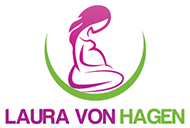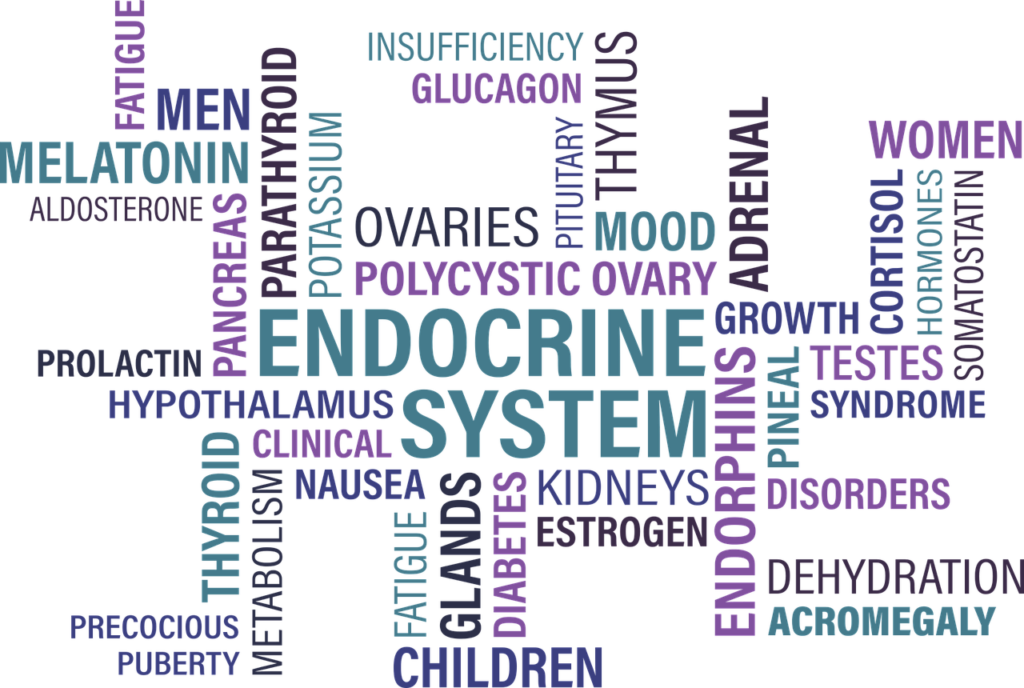My story
Nine months had passed since stopping birth control and still no period. Nine months of waiting without any answers, nine months of being told my blood work was fine without an explanation. Thankfully, I have a Naturopathic Doctor who was not totally convinced. After a series of more thorough blood work, deeper investigation and several ultrasounds, I finally received a diagnosis.
“You have PCOS” said my doctor very matter-of-factly. “Are you trying to get pregnant?” “If yes, I’ll refer you to a fertility clinic, if not, I would just go back on the birth control pill”. I stared at my doctor, half-shocked, half-relieved to finally get a diagnosis. But also feeling defeated that those were my only options….or so I thought.
I had several hallmark symptoms: amenorrhea, hirsutism, enlarged ovaries with multiple cysts, and my HbA1C levels made me borderline diabetic. Despite regular exercise and a balanced diet, I had constant sugar cravings, and I had not stopped gaining weight since coming off the pill. I left my doctor’s office, sat on a bench in the middle of downtown Toronto, and started crying. I was scared. Scared we would not be able to have children. Scared to do IVF, and scared to tell my colleagues at school.
Frankly, I was ashamed of my diagnosis. When everyone at school was tracking their perfectly regular cycles on their phone app, I sat in silence. My phone app had basically kicked me off saying it could no longer track my ovulation, or determine my cycle length.
Let’s go back in time for a minute
From the get-go, I had never experienced a regular cycle. My period would come out of nowhere, often months apart with no explanation. Thanks to some pretty shabby sex-ed training, I didn’t know that was not normal. I just figured some people get their period all the time, others do not, and maybe my body was just taking time to adjust.
After doing the progesterone challenge three times to induce a bleed, my mom took me to the doctor looking for more answers. This was an appointment I will never forget. She looked me up and down and said, “I’ve seen skinner girls get their period” and prescribed me birth control to ‘regulate’ my cycle. End of the story, no further investigation needed in her mind.
For me, birth control was a miracle, because I suddenly knew every month when my period was expected. In my mind, I was cured because birth control caused me to have a normal cycle for the first time in my life. Little did I know it was simply inducing a withdrawal bleed, and not a true period. Years later, armed with my diagnosis and my training in naturopathic medical school, I made it my mission to learn everything I can about PCOS. I wanted to understand better why I had this diagnosis, what are all my treatment options, and what is my prognosis for having a family.
So what causes PCOS anyways?
The underlying cause of PCOS is unknown at this time, but insulin resistance is thought to be a major contributor. It is hypothesized that chronic high levels of circulating insulin could be the mechanism behind hyperandrogenic-induced anovulation in women with PCOS. Say what? Basically high levels of insulin drive high levels of testosterone, which shuts down ovulation. Independent of body weight, hyperinsulinemia (high levels of insulin in the blood) in women with PCOS is strongly correlated with anovulation.
How does hyperinsulinemia prevent a woman from ovulating? High levels of insulin directly stimulate the production of androgens (testosterone) in our ovaries. These increased levels of circulating androgens seem to interfere with gonadotropin-releasing hormone (GnRH) pulse frequency inside our brain. GnRH is responsible for regulating our hormones, and be induced or shut down by several fertility medications. This interference with GnRH leads to chronically high levels of luteinizing hormone (LH) in the body. This persistently elevated level of LH reduces the synthesis of follicle-stimulating hormone (FSH) in the brain. This reduces the synthesis of FSH impairs follicular development and ultimately prevents ovulation. Science nerd over here.
What are the most common signs of PCOS?
● hirsutism, excessive male-pattern facial and bodily hair (90%)
● menstrual irregularity – with anovulation (90%)
● infertility (75%)
Other symptoms that women with PCOS often experience include acne and oily skin, glucose intolerance, insulin resistance, and weight gain. On blood work, total and free testosterone, dehydroepiandrosterone sulphate (DHEAS), and fasting insulin are often elevated.
Natural treatment of PCOS
As PCOS is a syndrome, treatment for each patient depends on her presenting symptoms and concerns. Naturopathic treatment for PCOS focuses on extensive diet and lifestyle modification, herbal supplements and tailored acupuncture protocols. I’ve learned so much along my personal journey, and want to help you find clarity and calmness along yours.
Evidence-based natural PCOS solutions
Inositol, specifically Myo-inositol (MI) is the cornerstone of treatment for PCOS. It has been well established that at least 30-40% of women with PCOS show signs of impaired glucose tolerance. As previously mentioned, hyperinsulinemia and decreased insulin sensitivity is observed in both overweight/obese PCOS and lean PCOS. Conventional treatment of PCOS utilizes insulin-sensitizing drugs (Metformin, pioglitazone, troglitazone) originally formulated for the management of diabetes mellitus type two. However, emerging evidence is demonstrating the use of MI for the treatment of PCOS as a safer alternative. Further, there is pushback from some fertility specialists in using Metformin at first-line therapy for infertile PCOS patients. Concerns have been raised about the link between Metformin and diminished egg quality. In one human study, supplementation of 2 grams BID of MI has been shown to restore ovulation, regulate menstrual cycles and increase progesterone during the luteal phase in PCOS women of childbearing age. For patients trying to conceive, MI may also improve egg quality. High levels of MI in the follicular fluid may help with oocyte maturation and is a marker of egg quality. Another study using 2g/day MI in 20 women with PCOS found that after 12 weeks of supplementation decreased plasma levels of LH, testosterone, prolactin and insulin. Best of all, five previously amenorrheic patients reported the initiation of a regular menstrual cycle upon completion of the study.
Acupuncture is a wonderful therapeutic tool for the treatment of PCOS. In rat models of PCOS, the application of low-frequency electro-acupuncture (EA) has been shown to increase blood flow to the pelvis. In human trials, 16 weeks of EA twice weekly has been shown to restore ovulation in 28% of subjects. Interestingly, the effects of acupuncture also seem to persist once treatment has been stopped; the researchers reported significantly decrease levels of testosterone and the LH: FSH ratio in subjects three months post-study completion. A Cochrane review of five randomized controlled trials (RCT) involving 413 women found mixed evidence for the efficacy of acupuncture for PCOS. Although studies showed no difference in clinical pregnancy rates compared to sham (fake) acupuncture, two studies reported increased ovulation frequency for true acupuncture versus relaxation alone or sham acupuncture.
My future plans
As a Naturopathic Doctor with a special focus in integrative fertility care, I am very open to the idea of needing some help getting pregnant in the future. Although getting pregnant naturally is the goal, we are so lucky to have such an incredible team of clinicians and fertility clinics available to us in Toronto. If IVF, IUI or some medication is needed to make a baby, the end goal is still the same. So even if our little miracle is made with lots of love and a little bit of science, I’m okay with that :)


